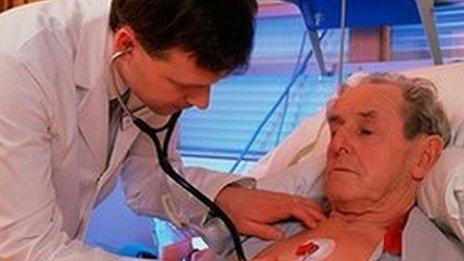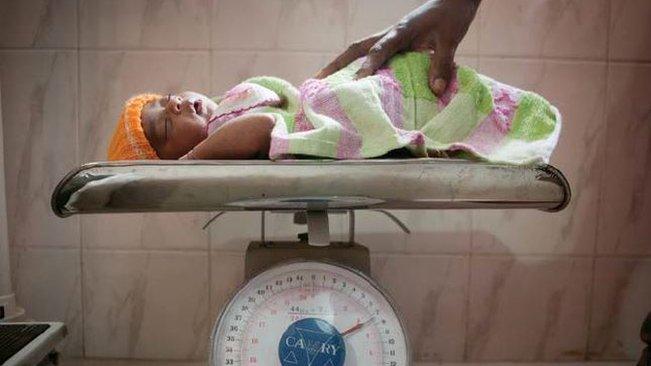Children 'being failed in early years'
- Published

The future prospects of children in England are being hampered because society fails them in the early years, a leading health expert says.
Government adviser on health inequality Sir Michael Marmot highlighted data suggesting half of five-year-olds were not ready for school.
He said high levels of deprivation and a lack of quality services and support for parents were holding children back.
But ministers said investing in the early years was a priority.
Since the mid-1990s, the proportion of national wealth being spent on the under-fives has more than doubled, although spending has dropped slightly in recent years.
But Sir Michael, who is director of the University College London's Institute of Health Equity and led a ground-breaking review of health inequalities for the government in 2010, said the development of children in England was still lagging behind that of many other Western countries.
Figures published last year by the Department of Education indicated 52% of children had "good development", external at the end of reception year. For those getting free school meals, the figure was 36%.
The data is based on a whole range of factors, including emotional, social, physical and academic measures.
Children were expected to meet goals such as being able to count to 20, external, go to the toilet on their own, read and write simple sentences and speak using past, present and future tenses.
'Failure'
Sir Michael also reviewed other sources of information covering employment, wellbeing, life expectancy and income.
He said while there had been a slight narrowing in life expectancy between the most and least deprived areas, serious problems still existed.
In particular, he highlighted data indicating nearly a quarter of households were living below the minimum income standards - a rise of a fifth in three years.
Sir Michael said the current situation was "unacceptable" and represented a "failure", as development at aged five was critical in determining an individual's life chances.
"When we first looked at these figures, we assumed there must be something wrong with the measurement.
"How can it be the case in England, one of the richest countries in the world with our long history of being a brainy country, that only 52% of children can have a good level of development?"
He said England had to do more to provide parenting support, such as Sure Start centres, and better access to subsidised child care to allow parents to work and lift themselves out of poverty.
"In looking at children's development, you have got to look at children, parenting, the circumstances in which parenting takes place - the conditions of parents' lives - and the general social context. Good services make a difference," he added.
A Department for Education spokesman said extra money was being put into early years.
"No child should start school behind their peers. This is why our plan for education is providing flexible, affordable and good quality childcare.
"We are raising the status and quality of the early years workforce by introducing rigorous new qualifications so practitioners are highly skilled and can help all children reach the expected level of development."
- Published5 September 2014

- Published30 September 2013

- Published18 March 2013

- Published25 February 2014
